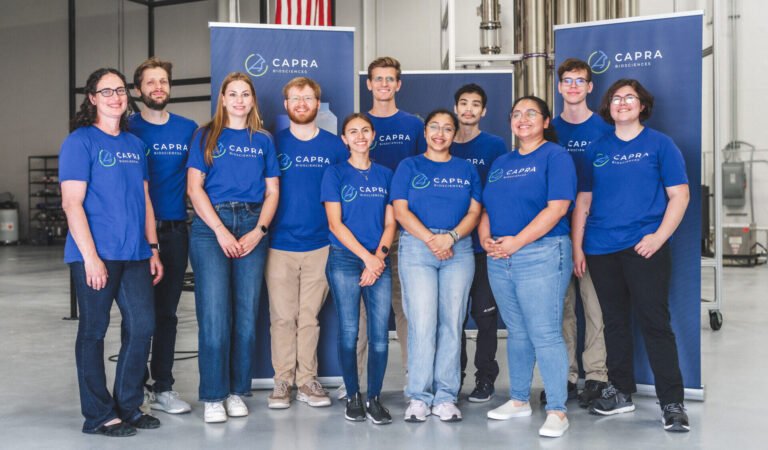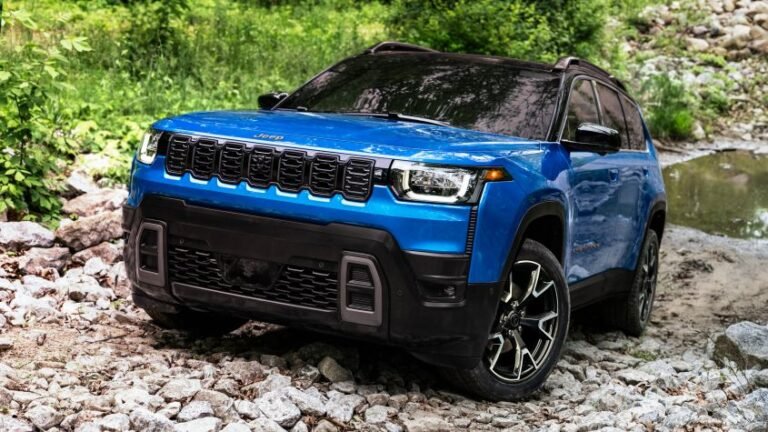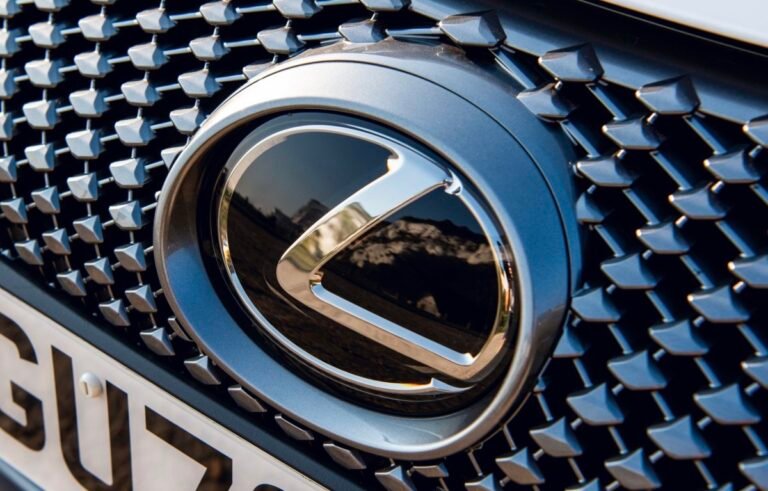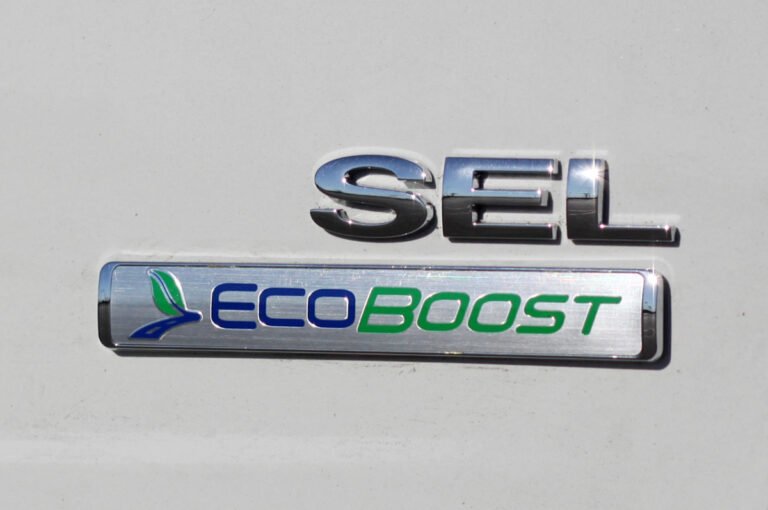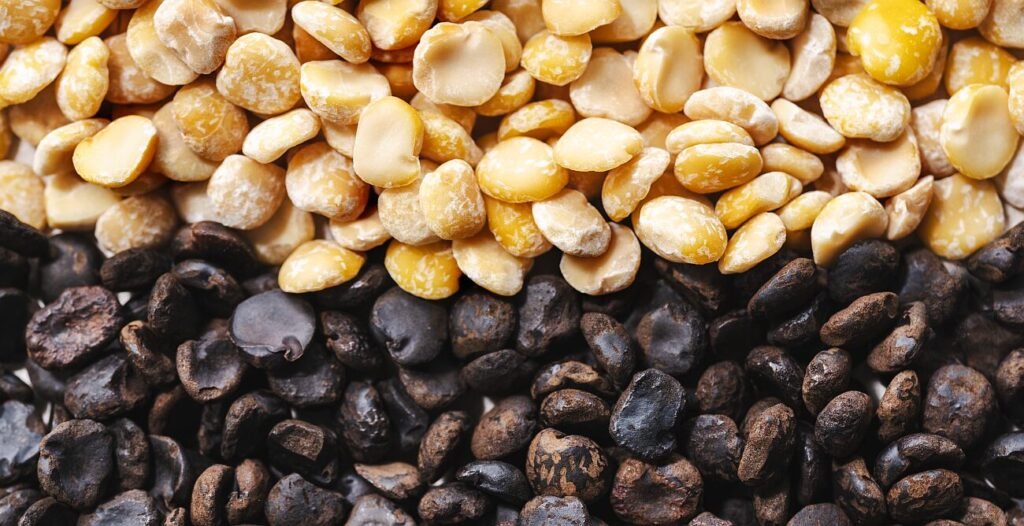
Belgian startup Koppie is moving into the alt-coffee space with patent-pending fermentation and roasting tech transforming pulses into “beans” that can be ground and brewed like traditional coffee, helping the industry address skyrocketing prices and availability concerns.
Founded by former Danone/Alpro marketer Daan Raemdonck and bioscience engineer Dr. Pascal Mertens, Koppie has just secured a “significant amount” of pre-seed funding in a round led by Nucleus Capital with participation from Mudcake, Rockstart, and several angel investors to scale up its tech.
Coffee under threat
In part due to climate change, the amount of land that can sustain coffee is dropping, while Arabica—the favored species— has weak genetic diversity and only grows at certain temperatures.
By 2050, according to one recent analysis, the land suitable for growing Arabica could be reduced by 50%, which means we’re going to see a significant reduction in production, while demand for coffee is also rising, particularly in large markets such as China and India.
As for pricing, harvests can vary wildly from year to year making the coffee market notoriously volatile. But if you normalize the curve, especially for premium-grade coffee, prices are only going in one direction, say experts: up.
With global demand increasing at more than 2% per year and yields expected to decline, World Coffee Research warns of a large shortfall in green coffee by 2030, says Koppie cofounder Daan Raemdonck: “With yields under pressure and prices rising, we believe novel and hybrid solutions will be essential for coffee companies looking to navigate volatile supply chains.”
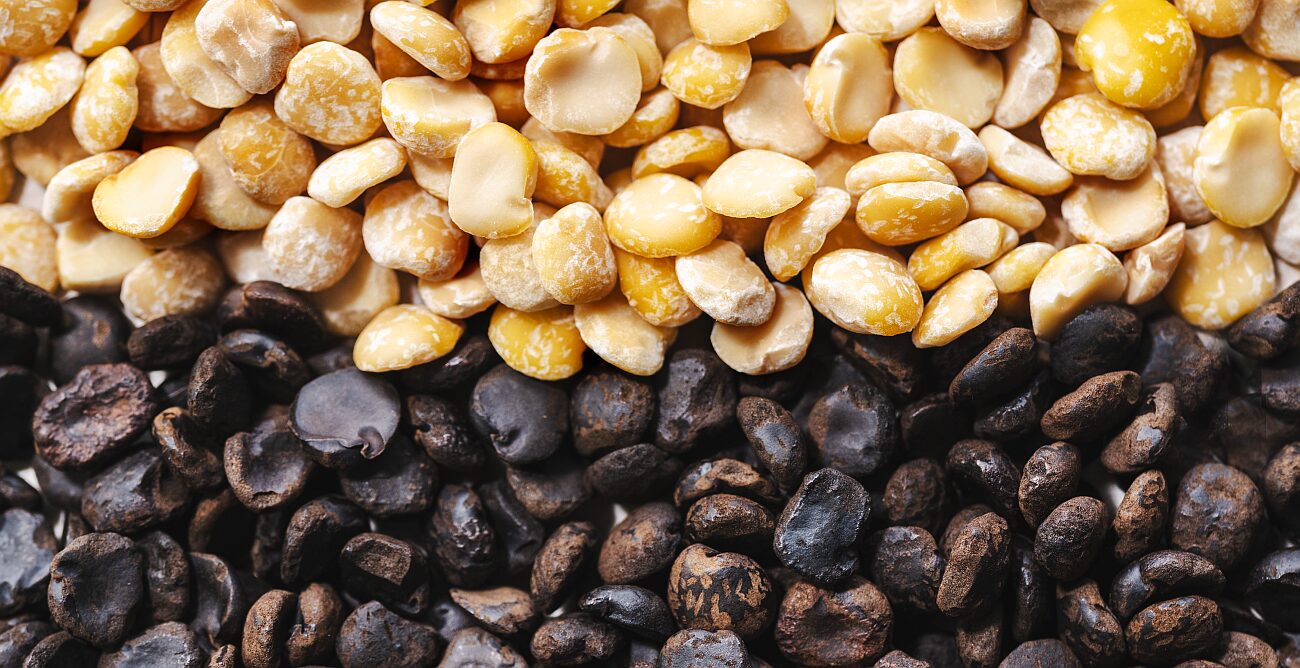
The business model and go-to-market strategy
Unlike some other players in the alt-coffee space that initially focused on building consumer brands, Koppie plans to supply its wares to coffee companies as an ingredient. It is now in discussions with European roasters and retailers with plans to launch at commercial scale in Q1, 2026.
The rationale is simple, Raemdonck tells AgFunderNews. Most coffee drinkers are blissfully unaware that their cup of Morning Joe is under threat. Building a consumer brand around solving a structural problem in the food supply chain that most people haven’t even thought about is pretty tough. Just ask anyone in the alt meat space.
The leading coffee companies, by contrast, are acutely aware of the challenges in their supply chains, and many are actively exploring solutions, he says.
“We decided to do b2b first, although it might at some point become a b2c play. When you blend Koppie with coffee, you don’t even see, smell, or taste the difference. And in certain ways, it’s more similar to Arabica than it is to Robusta [a cheaper, and more bitter, coffee variety] in its flavor profile.”
This creates a number of avenues for coffee companies exploring how they might market and position a hybrid coffee product, from a low-key approach simply listing the extra ingredient (“roasted fermented chickpea”) to more proactive messaging around lower caffeine or less acidity, for example.
Given that coffee firms selling decaf products wouldn’t have to pay to decaffeinate beans if they use Koppie’s naturally caffeine-free “beans,” meanwhile, there are also potential cost savings in some areas, says Raemdonck.
However, pitching alt-coffee as a more sustainable option seems less likely to resonate with consumers, he speculates. “One thing I learned from my experience at [Danone’s plant-based dairy brand] Alpro is that you can try to play the sustainability card with consumers, but ultimately it’s all about taste and health.”
“At Nucleus we firmly believe that novel and hybrid solutions are essential to maintaining the food rituals and experiences we cherish, so backing Koppie felt natural to us.” Maximilian Schwarz, partner, Nucleus Capital
Formulation and manufacturing
So how does Koppie make its products?
While alt-coffee startups have experimented with a variety of raw materials from date seeds to carob, Koppie stands out with its single-ingredient approach, first fermenting and then roasting chickpeas, yellow peas, or other pulses in a patent-pending process, says Raemdonck.
“We chose chickpea and yellow pea because they’re abundantly available here locally, but we’re pulse agnostic. The heavy lifting comes during the patent-pending fermentation process. The core of our technology is not necessarily around having developed specific [microbial] strains. It’s more how our strains work together, the conditions in which they work, and the sequence in which they work.”
While several alt-coffee startups are now pitching their wares to big coffee companies, the fact Koppie has a single ingredient and can slot into existing downstream coffee infrastructure (roasting, grinding, brewing) can potentially give it an edge over some competitors, claims Raemdonck.
“Being able to leverage existing downstream equipment just simplifies everything. Having a capex-light model is also a key part of our pitch. We could partner up with a coffee roaster for the roasting, and even for the pre-processing [fermentation steps] we believe we have spotted areas where there is existing industrial capacity that we could use.”
With the new funding, Koppie aims to increase production capacity from kilos to tons by the end of the year with a view to “finding one or two customers to do an in-market test.”
On the manufacturing front, says Raemdonck, “We believe we’ve uncovered two or three potentially viable industrial paths that we’ll be testing over the summer and in the back end of the year.”
“Koppie combines excellent taste, brewing ritual, and versatility in one ingredient, which is unique among alternative coffee companies. With the global coffee supply chain under growing pressure, its approach offers a timely and scalable alternative. Daan and Pascal bring rare clarity and depth as founders.” Erik Byrenius, partner, Mudcake
Futureproofing the coffee supply chain
As for potential customers, skyrocketing coffee prices have definitely focused minds over the past year or two, adds Raemdonck.
“Coffee prices have come down slightly since the beginning of the year, but they’re basically at a super high level, and for many of the coffee companies, that’s been a wakeup call. They know that in five, 10, 20 years from now, they are going to need options.”
Coffee companies Koppie has spoken to can be put into three buckets, he claims. First, those that haven’t given alternatives a great deal of thought; second, those open to alternatives and keen to test samples; and third, firms already deep into the alternatives space, including some with dedicated internal R&D programs.
While it’s early days, the fact Koppie’s initial product scored 70/100 from independent Q graders (professionals that evaluate the quality of coffee), rivaling many commercial-grade coffee brands, is a very encouraging sign, says Raemdonck. And further honing could get Koppie’s score up to 80/100 (specialty coffee grade), he believes.
“The great thing has been going to specialty coffee bars, giving them the product to taste, and being asked questions like, ‘What region is this from?’ [because they cannot distinguish it from regular coffee]. That makes me super enthusiastic about what’s still to come, knowing all the different routes we still have to improve.”
The post Belgian startup Koppie emerges from stealth to disrupt alt-coffee market with single-ingredient offering appeared first on AgFunderNews.


